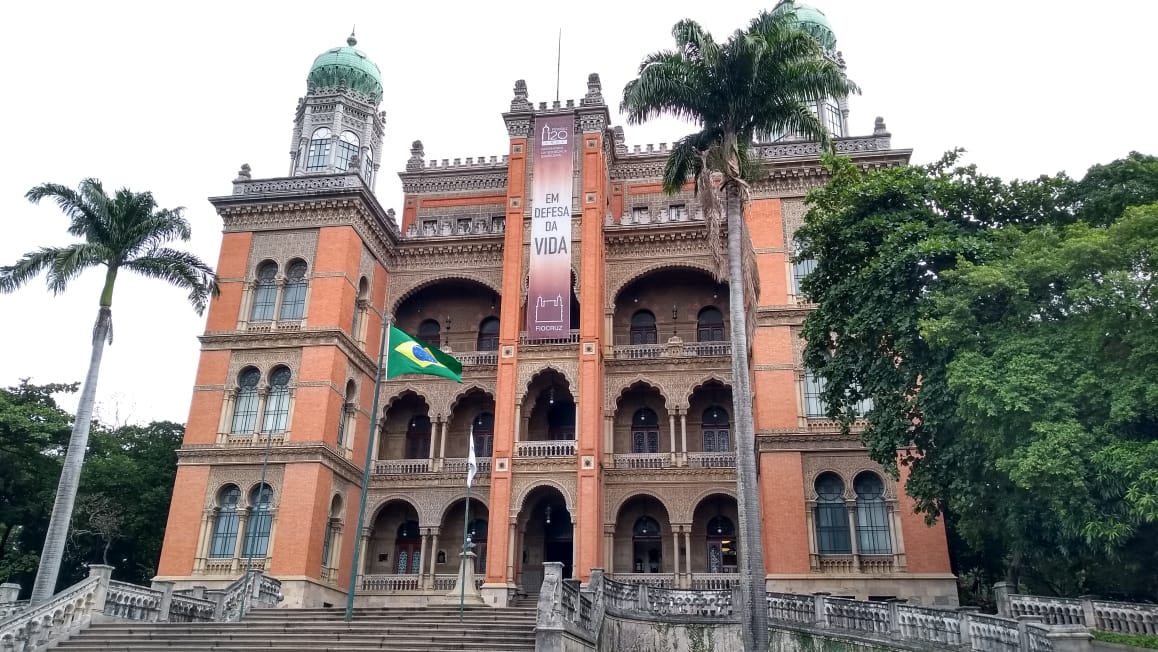RIO DE JANEIRO, BRAZIL – Researchers at Fiocruz (The Oswaldo Cruz Foundation, one of the world’s leading public health research institutions) are betting on an initial vaccination against Covid-19 becoming available in February 2021 for a specific public. From then on, the domestic production of the doses may ensure immunization to the general population, says the Bio-Manguinhos (Fiocruz) vice-director of Quality, Rosane Cuber Guimarães.

Recent research results from Oxford University in the United Kingdom on the safety of the vaccine against Covid-19 have raised the level of optimism around the world, which since December last year has witnessed the spread of the novel coronavirus in all world regions.
Phase 1 and 2 research, required by scientific procedure, ruled out serious adverse effects caused by the vaccine. Minor symptoms, such as local pain or irritability, which are accepted in vaccines against other diseases, were reported.
Brazil was one of the countries selected to take part in Phase 3 trials, which tests the vaccine’s efficacy. The trials, conducted by the Federal University of São Paulo (UNIFESP) and other partner institutions, involve 5,000 volunteers from São Paulo, Rio de Janeiro, and Salvador, Bahia. The immunization capacity of the doses are expected to be detected and, from then on, Fiocruz – the Brazilian partner in the Oxford researches – will be granted authorization to import the concentrated active ingredient, which will initially be converted into 30 million doses to be administered to a portion of the Brazilian population.
Rosane Guimarães said that in December this year, Brazil will receive 15 million doses and a further 15 million in January.
“We are now being granted only 30 million doses because we need to be sure of the vaccine’s efficacy before releasing it. So we have acquired 30 million doses and if the vaccine proves effective, we will receive an additional 70 million, totaling 100 million vaccine doses for the country in the first year,” she said.
Bio-Manguinhos will be responsible for processing the active ingredient and will conduct the final formulation of the vaccines, in addition to packaging, labeling, and delivering them to the Ministry of Health’s National Immunization Program for distribution. The first doses should be aimed at risk groups, such as healthcare professionals and the elderly, but this is still under discussion.
If the projections are confirmed, the country is expected to produce the vaccine domestically from the second half of 2021. “In parallel, we need to assess whether only one dose of the vaccine will be required, whether two doses will be required, whether revaccination will be required. These are questions to which we do not yet have the answers. The trials will continue,” said the health surveillance expert.
According to Rosane, the vaccine is on an excellent track and has progressed quickly, because Oxford was already working with the same chimpanzee adenovirus that is being used in the research, a virus that does not cause disease in humans.
Rosane explained that the vaccine carries a sequence of the coronavirus RNA and spike protein, which can ensure that an organism produces antibodies. “They conducted tests on this platform [using that principle] for both MERS [Middle Eastern respiratory syndrome] and Ebola. They already had much of what is needed to produce the vaccine, which was an accelerator. The other point is that at this time of pandemic, clinical trials were eased and there was cross-country cooperation.”
Despite the positive indicators, Rosane warns that the pandemic will not be solved overnight. “We believe that immunizing the whole population in 2021 will not be accomplished. Our advice is that while the vaccine is not out, or is still being administered, people should stick to the guidelines currently in place: wearing masks, washing hands, avoiding crowds, distancing. We must continue to live with these precautions until all the answers are provided by the vaccine.”
The potential for a setback is virtually ruled out by the researcher. According to Rosane, Phase 3 of trials can point to a degree of immunization of over 90 percent. “If it’s higher, we can relax a little,” but there are risks that this effectiveness will reach levels of only 50 or 70 percent. “We will have to conduct further studies and perhaps look for a vaccine with greater potential, but it will be a comfort if we have a vaccine with over 70 percent immunization.”
There are other companies bringing vaccines to Brazil. One such example is the research developed by the partnership between the Butantan Institute and the Chinese Sinovac, based in Beijing. At Bio-Manguinhos’ facilities, Brazilian scientists are developing two studies, still in a pre-clinical stage, with experiments on animals.
By Monday afternoon, July 27th, Brazil counted 87,131 deaths and 2,423,798 confirmed cases. In Rio de Janeiro the death toll stands at 12,835 and 156,325 infections.
Source: Agência Brasil

